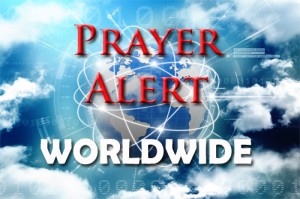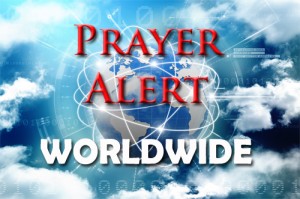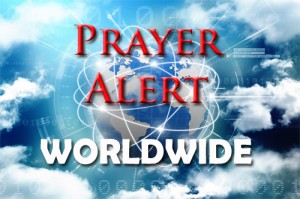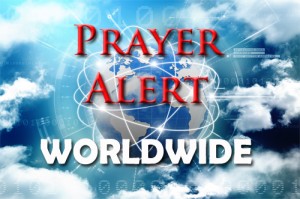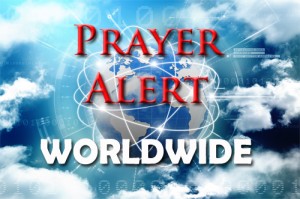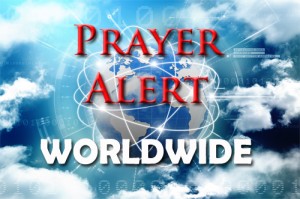Displaying items by tag: Asia
North Korea frees three men ahead of summit
Three US citizens have been set free from prison by North Korea, according to a tweet on 9 May from US president Donald Trump. This is viewed as a goodwill gesture before a historic summit between Mr Trump and Kim Jong-un. Mr Trump greeted the men when they returned with secretary of state Mike Pompeo, who was in Pyongyang to arrange a date and location for the planned talks. Missionary Kim Hak-song, humanitarian worker Tony Kim, and pastor Kim Dong-chul boarded the plane ‘without assistance’, the White House said. They had been jailed for alleged anti-state activities and placed in labour camps.
Trump threatens Iran
A day after Donald Trump said he was withdrawing from the Iran weapons deal, he created further anxiety by threatening Iran with ‘severe consequences’ if it restarted its nuclear programme. He is also preparing to impose new sanctions, perhaps as early as next week. His comments came as officials in Iran and leaders across Europe scrambled to see if they could continue to operate the 2015 deal negotiated by Barack Obama. France’s foreign minister claimed that the deal could yet continue, but Iranian president Hassan Rouhani told Emmanuel Macron that Europe had only a ‘limited opportunity’ to preserve it.
Syria: Christian fears after takeover
The city of Afrin welcomed refugees fleeing Syria’s war, but in January Turkey, backed by Syrian rebels, took control there. Hanan, a Syrian Kurdish Christian, fears for those who converted from Islam to Christianity. Six years ago he started a church there, which now has 230 members. Many are from a Muslim background, becoming Christians when the grinding civil war drove them to the church searching for peace. Syrian rebels are now threatening to kill Kurds unless they convert to Islam. ‘By Allah, if you repent and come back to Allah, then know that you are our brothers,’ a soldier said in an online video. ‘But if you refuse, then we see that your heads are ripe, and that it is time for us to pluck them.’ There are serious fears of ethnic cleansing in the region.
Malaysia: opposition scores historic victory
In Malaysia's national election on 9 May, there has been a stunning victory for the opposition led by former PM Mahathir Mohamad. Aged 92, he came out of a long retirement to take on the current PM Najib Razak and his Barisan National party, who are widely considered to have become terribly corrupted and self-serving. After some Christian leaders were kidnapped (they are still missing), and with laws threatening their religious freedom increasingly being enacted, the churches decided to join together in an all-out initiative of desperate prayer called ‘Light up Malaysia’. It looks as if their prayers are now being answered, thanks be to the Lord! Let us continue to pray with them that the results of the election will be quickly and widely accepted, and that the ruling party will accept the results and relinquish its hold on power gracefully.
Pakistan: religious intolerance
Pakistan came into being in the name of the religion of Islam. Islamisation is integral to government policy. Constitution, laws and policies restrict religious freedom and the government enforces these restrictions. Acts of violence and intimidation against religious minorities by extremists increases and exacerbates existing religious tensions. Extremists in some areas demand that all citizens follow strict versions of Islam, with brutal consequences if they don’t abide by it. Society is deeply opposed to amending the blasphemy laws and some religious leaders use incendiary rhetoric to convince much of the population that any attempt to amend the laws is an attack on the sanctity of Islam. In the name of religion people are silenced by the military, civil bureaucracy, and Jihadists. Issues involving the blasphemy law generate extremist responses. Aasia Bibi, a Christian woman, was sentenced to death in 2010 for blasphemy. Her lawyer says international support is encouraging, but he is not hopeful for clemency. See
Brunei: the next stage of Sharia
Brunei is a sovereign state located on the north coast of the island of Borneo in southeast Asia. Apart from its South China Sea coastline, the country is completely surrounded by Malaysia. In 2014 the government announced the phased introduction of a penal code based on Sharia law, which will eventually include hudud penalties such as amputation and death by stoning and potentially the death penalty for apostasy. It is about to implement the next stage of this process. The Islamic Religious Council and Sultan Hassanal Bolkiah signed off the measure on 10 March. Implementation was delayed, but now appears to be going ahead, despite international pressure and criticism from Brunei citizens on social media. Christians comprise around ten percent of the population of the oil-rich state, where there are already tight restrictions on teaching Christianity. Pray for protection, spiritual maturity, and Biblical training for those leading the underground Church.
Armenia: update
Prime minister Serzh Sargsyan was forced to step down after weeks of mass demonstrations. Many hoped he would be replaced by a more honest and honourable man, Nikol Pashinyan. On 2 May 96% of Armenia’s capital, Yerevan, came to a standstill as thousands blocked roads when parliament refused to elect Mr Pashinyan as the new prime minister. They blocked roads to the airport, and roads to government buildings. Protests are expected to continue; even government employees have joined the protest movement called the ‘velvet revolution’.
Nepal: sharing the Gospel
Nepal has eight of the ten highest peaks in the world. The Himalayas cross northern Nepal, and rugged terrain makes remote communities extremely difficult to access. Six years ago *A, a Nepali Christian leader, climbed to the top of a peak and in the fading dusk saw lights flickering in villages across the side of the mountain. He realised no-one had shared the Gospel in those areas. Beyond that mountain there’s another, and then another, all the way to Tibet where there are many villages that have no witness to the Gospel, no believers, and no Church. Together with a discipleship mission training programme they shared the news of Jesus Christ in that area. People were receptive, and they prayed for a number of people who were healed. Now there are seven churches in that area, working together to disciple new believers.
Taiwan: praying for fire to fall
At 9am on the fourth day of the ‘Hot Fire Special’, a long queue outside a basketball stadium in Taipei waited to enter and fill over 6,000 seats. Christians from home and abroad were praying in unison in a four-day call, ‘Lord, send fire’. In the front row, on the field, in the back row, hands raised high, hands low, standing, sitting, crouching, with loud shouts or struggling to cry - ‘Lord! Come to us! Come and fill us!’ They shouted, ‘We will give God a space to intervene in our hopeless life’, and ‘There must be a space reserved for God to work in our hearts.’ Pastor Zhang Zhenhua said, ‘When God has a great plan, He will not give you strategy in advance, He gives you a vision. God uses visions to motivate dead faith.’ Thousands in the stadium had a vision for God’s fire to fall on their nation, for the resurrection work of the Holy Spirit.
Armenia: urgent international appeal
On 21 April, 37 human rights organisations and NGOs made an urgent appeal to the UN Council of Europe on behalf of Armenia. The opening sentence was, ‘We, the undersigned civil society organisations, wish to bring to your attention the political situation in Armenia that is a clear confrontation between the existing autocratic corrupt regime and the hope for democracy.’ Until 2015 Armenia had a semi-presidential governance system with direct elections for the president to hold a maximum of two terms of service. To maintain power after the expiry of his two terms, President Sargsyan changed the constitution. Since mid-March civil society groups have campaigned to oppose his election of a prime minister with a life-long dictatorship (a common trend in former Soviet countries). The peaceful protests, started independently by different groups, quickly attracted wide support of tens of thousands of dissatisfied people, who are facing brutal attacks by police and criminal groups every day. See

